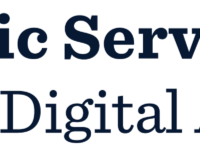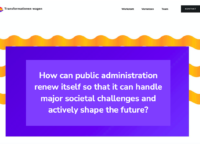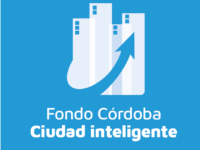Governments need staff equipped with key digital capabilities alongside traditional skills of policy, economics and ethics. The majority of post-secondary programs producing future public servants lack training on digital era skills and competencies. To solve this problem, we lead a train-the-trainer model to share open educational materials, including a syllabus on digital era public administration skills. We are nurturing a global community of faculty wh teach these materials.
Innovation Tag: Digital and Technology Transformation
Democratic Technology brings governments and citizens into the 21st century. It empowers engagement in real time on daily issues, between people and politicians in a seamless and transparent way. Using geolocation or an address entry, real verified users are shown their government representatives on their smartphones enabling direct one-to-one messaging on important events. Collected anonymized data enables evidence based decision making for the public and governments.
SA VPP is the largest network of home solar and battery systems lowering energy costs for thousands of public housing tenants while providing critical energy network services.
SA VPP has developed innovative approaches to:
Significantly reduced energy bills for vulnerable South Australians
Providing more access to renewable energy for more people
Proving new commercial models for financing renewable energy assets
Driving regulatory reform that accelerates Australia’s energy market…
Transformation Wagen - "Daring Transformations" is a learning programme co-developed with and for public servants in the field of Environmental Politics in Germany. Aiming at enhancing tools for public administration to renew itself, it creates capacities and methodologies to handle major societal challenges and foster a transformative mindset to actively shape the future and not just react to what is happening.
The Anti-Corruption Digital Marketplace (MDA) is the first space developed by a public institution in the history of Mexico, in which public institutions can share free and ready-to-use digital tools, in order to streamline and promote innovation and cooperation among those that need either software, or other digital resources to achieve common goals in addressing corruption. The MDA contains more than 22 tools, some of them have been developed by other national or local level public…
Ethical delivers is a home delivery platform founded in 2020 to address the needs raised by the Coronavirus pandemic as an alternative to extractive capitalist platforms. It provides basic goods and services while respecting workers' rights and environmental sustainability. Designed following cooperative principles through an urban codesign process, it has clear pillars: a fair rider salary, the use of vehicles that minimise environmental impact, and a more direct relationship with small…
The Busan Port Authority (BPA) has completed the two innovative projects utilizing the features of sea port, one is ‘piezoelectric power generation system’ and the other is ‘construction wastes recycling project’. Both the piezoelectric power and the recycled construction wastes have been assessed not only to contribute to the improvement of environment, but also, to reduce construction cost. The BPA plans to share the gained outcomes of those projects with other domestic and foreign…
In order to implement innovative solutions in the city of Córdoba under an open innovation approach, the local government launched the Córdoba Smart City Fund, the first Govtech fund in Latin America, to invest and partner with impact startups that contribute to the development of a smarter, more inclusive and sustainable city.
Repetitive tasks for a civil servant involve between 3 and 6 hours a day, and generate delays in administrative processes and increase human errors. By innovating the automation of these tasks, using a free Robotic Process Automation (RPA) software, response times, costs and quality of service within the District institutions and to the citizen are improved.
We detect wicked problems and turn them into new spaces for innovation. It is a platform for all Estonian ministries, the public and the private sector, experts and entrepreneurs to join forces and build the future that we deserve. We are untapping new markets with a powerful but lean public-private collaboration.








